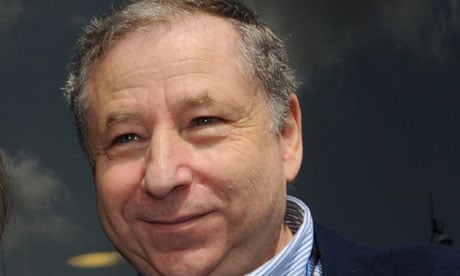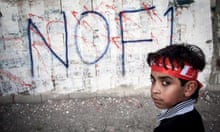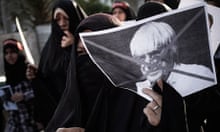Jean Todt, the head of motor sport's world governing body who has condemned hundreds of Formula One personnel to a potentially hazardous and harrowing week in Bahrain, will not be attending this Sunday's race himself.
Instead the president of the FIA will be busy electioneering because his four-year stint in office comes to an end this autumn. Remarkably he is expected to be re-elected unopposed, such is the parlous state of the FIA at the moment.
A week ago the former world champion Damon Hill, who attends races as a Sky analyst, made an impassioned plea for Todt to speak out about the Bahrain Grand Prix. Hill argued that it was important that his sport was not perceived as making life worse for the people of Bahrain.
That was the precise perception on Tuesday as the teams poured into the country from China, where the last race was held on Sunday. They were greeted with the news that tear gas had been fired in a raid on a secondary school in Manama, the capital of the tiny Gulf kingdom, where the Sunni royal family rules over the Shia majority.
Police went into the Jabreya boys' school after a students' protest calling for the release of an arrested colleague. On the night before, on Sunday, a car had exploded in Manama.
There are also anti-F1 slogans being painted on walls and on Tuesday night there were reports of further demonstrations in nearby villages against the government and Sunday's race, which last year was used as a propaganda tool by the authorities, in a blatant contravention of the FIA charter.
But just as Formula One cries out for leadership there is complete silence from the FIA's Paris headquarters. There has been only a call for calm from the sport's commercial rights holder, Bernie Ecclestone, this week.
The FIA, an often much respected ruling body, which is responsible for the extreme vigilance with which the safety of motoring is now observed, on roads as well as racetracks, is impotent in its most urgent hour.
Last year's race, which went ahead with Todt's blessing and which he attended after the 2011 event had been abandoned, was a public relations catastrophe for both Formula One and the ruling authorities here.
The whole of Formula One adopted the brace position here last year as pro-democracy protesters were put down by a combination of tear gas, stun grenades, birdshot and beatings in the capital Manama and outlying villages.
Four members of the Force India team were caught up in one petrol bomb attack, and two returned home early, but almost everyone in the paddock did not want to be there. One team principal revealed to the Guardian that he felt "very uncomfortable about coming to Bahrain" and added that his views were representative.
Richard Burden, the Labour MP who wanted last year's race cancelled, expects the trouble to escalate this year and, as the teams arrive, the early signs are that both sides are revving up for the next five days.
Meanwhile, a group of British MPs have called for the race to be cancelled. In a letter to Ecclestone, signed by 20 MPs, the chairman of the All-Party Parliamentary Group for Democracy in Bahrain, Andy Slaughter, wrote: "We request you cancel the Grand Prix. It is likely to attract as much negative publicity as last year.
"Since April 2012, many more people including children have lost their lives and the whole country exists in fear and intimidation.
"Last year's race was held under conditions of martial law. Three hundred protesters were arrested, some spending months in jail.
"I think most democratic-minded people would be appalled if you allowed the Bahrain leg of the Formula 1 championship to go ahead amidst the most atrocious human rights violations."
The Bahrain Grand Prix, such a success when it launched in 2004, when the country appeared set on a programme of progress and reform, has become a catalyst for confrontation and violence.


